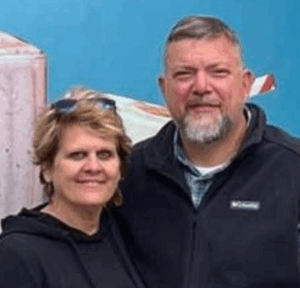 by George and Dana Welty
by George and Dana Welty
 In twenty-five years of working with youth groups, we often told teens at the end of a mission trip, “We do mission trips to teach you that you don’t need a mission trip to do these kinds of things.” With those trips, we intentionally created space for spiritual gifts to emerge and for students to gain confidence in using them. We celebrated when a teen who excelled at a VBS in Africa came home and volunteered as a babysitter for Mother’s Day Out, or when a student who served at a medical clinic in Mexico chose to major in nursing to continue helping people. Candidly, calling them “mission trips” was a misnomer. They were mission training. The real mission trip began when the plane landed back in our city.
In twenty-five years of working with youth groups, we often told teens at the end of a mission trip, “We do mission trips to teach you that you don’t need a mission trip to do these kinds of things.” With those trips, we intentionally created space for spiritual gifts to emerge and for students to gain confidence in using them. We celebrated when a teen who excelled at a VBS in Africa came home and volunteered as a babysitter for Mother’s Day Out, or when a student who served at a medical clinic in Mexico chose to major in nursing to continue helping people. Candidly, calling them “mission trips” was a misnomer. They were mission training. The real mission trip began when the plane landed back in our city.
As we transitioned into adult ministry, we’ve discovered the same principle applies when engaging volunteers. We don’t collect volunteers just to get things done. There is usually a need, but service in the kingdom is never merely transactional. It’s spiritual formation. It’s an opportunity for people to embody the heart of Jesus in loving and serving others—and in doing so, to experience union with Christ. Put another way, when someone in your Sunday school class is in the hospital, you might pass around a clipboard so members can sign up to take meals. The goal isn’t just to organize help. It’s to teach your members that they don’t need a clipboard to serve someone in need. We intentionally give opportunities to serve to help our members become the kind of people who will serve.
Personal invitations are better than all-call emails. Online signups have their place, but nothing replaces a face-to-face invitation: “Hey, why don’t you come and do this with me?” Serving together builds relationships, and those relationships deepen discipleship. One of our children’s ministers invites young moms into the classroom by saying, “You don’t have to teach, just come with me.” The goal is for those moms to gain the confidence to lead. Mentorship is largely missing from many of our church cultures. Walking alongside volunteers is one way to mentor people into service. Sometimes a need is big enough or urgent enough to warrant emails or online signup, but even then, we try to keep relationships and mentorship in mind.
Good communication builds trust. With so many channels—email, texts, social media—messages easily get lost. One member told us he receives over 100 emails a day. Many of you probably get more. We learned in our college economics classes that scarcity creates demand and responsibility. If we try to communicate everything, everywhere, all at once, too many messages get lost in the process. To cut through the noise, we limit our communication to one email a week (except in emergencies). The same information goes on our app, appears in social media posts, and is referenced in Sunday announcements. People know exactly where to look for accurate, consistent information.
Remember to say thank you. When someone gives their time, appreciation matters. It doesn’t have to be fancy—a meal, a handwritten note, or even a simple thank-you goes a long way. After two hurricanes hit our community within two weeks of each other, members spent days and weeks gutting houses, hauling furniture, and rebuilding. Even those with damage to their own homes served others. Several families who had been hit the hardest recorded short thank-you videos on their phones, which we compiled into a rough, poorly edited clip for Sunday morning. It may have been the worst video we’ve ever made, but it was also deeply meaningful. Gratitude fuels ongoing service.
Tell your stories well. Take pictures. Share videos. Let volunteers describe their experiences. When we were both teachers, we learned this truth: what you fail to document never happened. Not every member can participate in every project, but many want to be part of a church that serves. Telling stories well allows them to celebrate and share in the mission. Good storytelling not only honors what God has done but also inspires future volunteers to get involved.
Here’s the reality: what we do, and who we do it with, deeply form us. It changes us. It makes us who we are. We don’t have a separate “discipleship ministry” at our church. Instead, we aim to embed discipleship into every ministry and every volunteer effort. When we invite people into service, we’re not just filling slots; we’re shaping hearts. As more members engage as volunteers and servants, we join those ancient stories of Jesus and his disciples—and in the process, we grow closer to Christ and to one another.
About the Authors:
George Welty spent twenty-five years walking alongside teens as a teacher, coach, and youth minister. Today, he serves as the Lead Minister at the Northwest Church of Christ in St. Petersburg, FL—though he likes to say he’s really a youth minister for adults. George is passionate about exploring the beauty of God’s story and using his words to invite the curious to join the adventure.
Dana Welty is a seasoned educator and currently teaches Kindergarten in St. Petersburg, Florida. She spends her days being the Pied Piper, leading her students to the amazing things in the world that God has created and transformed, while building a strong academic foundation for their transformation as well. She has been a part of a minister’s family throughout childhood and by marriage. Dana earned her B.A. in communication with an emphasis in theatre and her Master’s degree in education from Freed-Hardeman University.

Leave a Reply